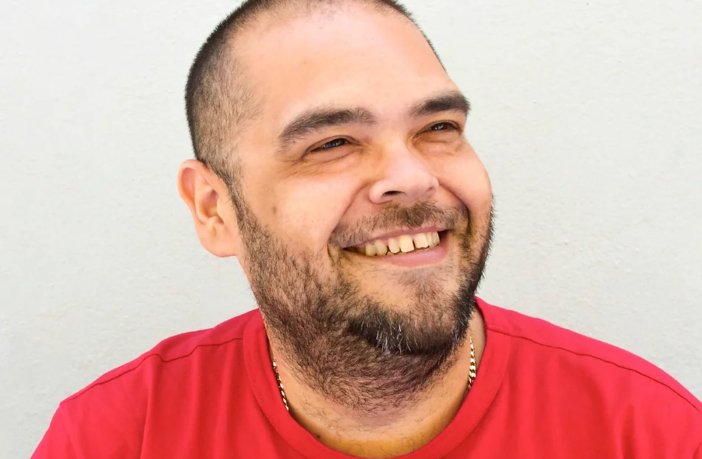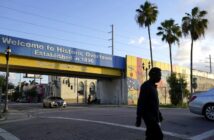This Hispanic Heritage Month, POCIT spoke with Marcos Navas, the CEO of Latinos in Coding, about his work to empower Latinx communities in tech and make coding more accessible.
By 2045, the minorities of the US will make up the majority of the workforce, with the Latinx community playing a pivotal role in this shift. Despite making up 17% of the workforce, Latinx people currently account for only 8% of workers in STEM.
Coding is the language of the modern world, Navas argues, with the COVID-19 pandemic shedding light on our reliance on digital tools.
So, he founded Latinos in Coding to make sure his community takes its place in this digital future. The nonprofit provides advice and mentorship to Latino, Latina, and Latinx people to close the equity gap in computer science.
Making coding more hands-on
Marcos is an educator who majored in history and humanities, but his career trajectory changed when he was introduced to 3D printing.
“[I] started getting involved with 3D printing. That led me to work with my school district and running STEM camps,” Navos told POCIT.
Around this time, Navas decided to come across Raspberry Pi – a UK-based charity enabling young people to learn about computing and digital technologies – and decided to become a Pi-certified educator.
Navas longed for a more hands-on approach while playing around with programming blocks.
“I just said, I wish I had these blocks physically in my hand, and that was the birth of hands-on coding, which is our physical code blocks that you can put together, create an algorithm, and then you become the robot and act out of the algorithm.”
Navas released his coding blocks, Hands On Coding, during the COVID-19 pandemic and used them to make coding more accessible.
Coding as a second language
Noting the underrepresentation of Latinos in STEM fields, Navas turned his attention to making coding more accessible to his community.
Latinos in Coding is based in Hudson County, New Jersey, with a large Latino community.
Navas stressed the importance and potential influence of young Latinos in the tech industry. As a result, Latinos in Coding want to create an impact through youth workshops and programs.
“Their voice is not silent when they come together, and they use their tools such as social media. They come in numbers, and they come with power,” he stated.
“We really want to focus on the youth when it comes to Latinos and coding because we understand that’s where the change is.”
A part of that mission involves creating coding and computer science as a second language. Navas drew a comparison with the English as a Second Language (ESL) programs that are commonly used across US schools.
‘We want to start treating coding and computer science as a second language because that’s really humanity’s second language.”
“ESL programs are very popular in the US because of the influx of immigrants coming into the country and the need to service them with different languages.”
“We know learning a language is better done at an early age,” Navas continued.
“[Similarly], we now know that coding needs to be introduced earlier. It’s easily acquired, easier for our students, and a better foundation of fundamentals.”
Navas believes a better foundation will equip young people for our increasingly digital world.
“We know that many of our young kids will have to know a coding language just to survive in the common world.”
Navos explained that if you’re a small business owner, you need a website or an app, and you may have to look at algorithms; therefore, coding is essential for the upcoming generation.
‘We want to start treating coding and computer science as a second language because that’s really humanity’s second language.”
“Be ready for us because we’re here.”
Through Latinos in Coding, Navos explains, with kids, you can see the switch turn on as they realize that coding is something they can learn to grasp.
“You see the switch turn on … This isn’t foreign. This isn’t something that is out of my realm. I can do this, too. You can see a switch in their eyes and mannerisms and hear the excitement.”
His message to Latinx people in tech is bold and simple.
“The Latino, Latina, and Latinx community, first and foremost, is here. We are powerful. We have a voice, and we are the future, and we’re starting to see that in all areas of life,” said Navos.
“So be ready for us because we’re here. I’m super, super proud of being Latino myself.”
You can find out more about Latinos in Coding via their website.



